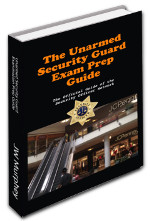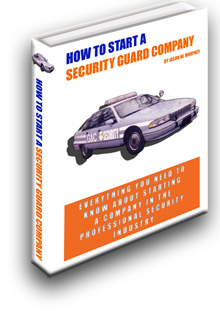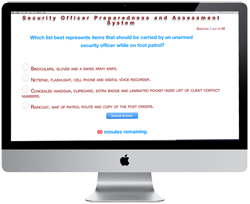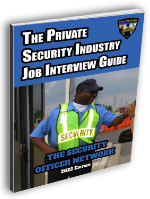 Practice Test
Training
Regulations
Security FAQs
Member Support
Sign In
Join
Practice Test
Training
Regulations
Security FAQs
Member Support
Sign In
Join

LAST EDIT January 9, 2024
What Is It Really Like To Work for Allied Universal Security in 2024?
Listen to Content From This Article.
Ahh, yes, working for Allied Universal Security. It's probably one of the most common worst security guard job stories. But the chaos that you might associate with Allied also provides opportunities. You just need to know the pros and the cons and most importantly, the pitfalls that must be avoided.
If you don't navigate these pitfalls wisely, working for Allied might be downright dangerous to your career, your mental health, and even physical safety.
Are you ready to find out what you might be getting into?
Stay tuned, and I will take you through some of the must-know items before you answer that ubiquitous 'Allied Universal is hiring' job ad.
This article is brought to you by The Security Officer Network. If you are interested in being a professional security officer, this is your place to build out your professional security profile. Access much of The Security Officer Network online library, add T S O N and FEMA certificates to your profile and impress your future employers and clients by joining us today at The Security Officer Network dot com.
The following are my personal honest opinions. Take them for what they are worth, but this is the honest advice I would give to a friend based on my personal observations.
As we discuss this material, here are three terms you will need to know. It's important to understand these terms because they guide your decision-making related to your career goals and how Allied fits into them. And your safety too.
Relaxed Duty Security: This refers to private security posts characterized by minimal responsibilities and limited interaction with the public. These positions often require less physicality and allow for a more laid-back approach. Officers in these roles typically maintain a presence and observe, but their duties do not demand constant active engagement. This category of site sometimes allows security personnel to engage in personal activities, such as reading or other hobbies, while on duty, provided that the basic requirements of the security post are met. These are what I sometimes call 'Job Hack Sites,' where the job is so easy-going, it's one of the foremost job hacks; getting paid for sitting or walking around.
Active Duty Security: These positions encompasses security roles that require high engagement, significant responsibility, and regular interaction with the public. These positions demand a combination of physical readiness, people skills, and constant attention to the environment. Officers in these roles are actively involved in ensuring safety and security, responding to incidents, and engaging with the public or staff as needed. This category suits environments that require vigilant, dynamic, and comprehensive security measures. Active Duty Security officers are expected to be fully attentive and responsive during their shifts, with their primary focus on the security tasks at hand. I often refer to the officers who work these sites as security professionals, those who take confidence in their ability to achieve and maintain a safe and secure site.
On-the-Spot Hiring Job: A job where the interview serves more as an orientation or job briefing session, indicating that candidates are hired on the spot, subject to minimal eligibility checks. The primary focus is on immediate availability and suitability for the role, with a rapid onboarding process. The applicant isn't so much asked about his qualifications, as he is prepped for the role. "We need your measurements for your uniform, can you work tonight?"
Ok, with that out of the way.
Let's go!
If I had to describe the company culture of Allied in one word, I would use 'Chaos.' In my view, Allied Universal is a Frankenstein concoction that has been rapidly assembled in the last few years through insane amounts of private equity and even government pension fund money. In my view, this unwise process has rapidly fused together many different security companies into a mélange of complete chaos that's now bordering on illegal monopoly.
When combining Allied Barton and Universal, Universal Security CEO Steve Jones famously, reportedly conducted the executive officer consolidation interviews in just two days.
Two days?
If the interviews for the most important personnel decisions of one of the most significant consolidations in the history of private security were made in a mere two days, you can only imagine how this type of rash decision-making likely permeates the culture of the entire company.
It's indicative of an organization that appears to have first and foremost focused on acquiring companies, instead of, in my view, taking their time to create a quality product.
And make no mistake, I believe this will impact you—the front-line officer—in ways you can only begin to understand or imagine.
Throughout the rest of this article, you are going to notice a common theme: how, in my personal view, a culture of chaos contributes to a number of challenges. Challenges that will both haunt you and provide you with a set of opportunities should you choose to take them.
I believe, that in many cities, Allied will hire just about anyone, to the basic security positions, provided they meet the legal requirements to have a guard card and can pass a basic drug test. This is a pro, because it means you can get a job and get on site in just a few days. It's a con because you are probably going to get stuck working with some co-workers who probably shouldn't be in a security uniform and this could be a problem for your sanity and even your safety.
In fact, Allied might be the foremost example of a On-The-Spot Hiring Security job.
You go into the interview thinking that it is an actual job interview but discover that it is more of a job prep session than it is a job eligibility determination event. Subject to your state's licensing rules, they will probably get you into a uniform and on site as fast as the paperwork and "training" allows. Expect that the training will probably amount to as little as a single day of sitting in the office, being rushed through the training modules.
Here's the problem with this. With lots of rapid intake, and likely not much vetting, it means that there's probably going to be a lot of turnover. And with a lot of turnover, the local Allied office is going to be under pressure to keep up with the paperwork. This could include the state licensing paperwork which you need in order to work security. We recently saw a possible example of this when it was revealed that Allied's Memphis Tennessee office had 300 examples of officers who were out of compliance with the state.
This might put you in danger is being out of compliance with the state. So, you need to understand, that if your local Allied office is overwhelmed, you might be at risk of having your state papers dropping through the cracks. You should prepare for this by knowing the state licensing/certification rules, and ensuring that you are in compliance, even if you have to push your own paperwork. Do not let Allied's incompetence impact your record.
Whenever there's chaos, there will be turnover, and easy hiring standards will follow. It's a self-perpetuating quality-of-personel death spiral. Thus, there's going to be lack of professionalism. It's just how things work. Your co-workers are likely to do stupid things, such as, while in uniform: go live on TikTok bragging about how easy the job is; complaining about Allied for all to see online; failing to maintain a professional appearance; and generally create a bad public image for the brand, a brand that's now associated with you and your resume.
Additionally, these not-so-professional co-workers are likely to have chaotic personal lives and this will affect their on-the-job performance. They may often fail to show up on time to relive you when your shift is over and this can be very stressful to you because you will never be certain of when you shift is actually ending.
And, then there's the uniform. In many cases, Allied officers don't wear an actual badge. They are instead wearing a shirt with a badge patch. This cheapness tends to create a mental image of Allied officers, a classification if you will, of being subpar to other security officers, who actually sport professional uniforms with actual badges.
All of these factors combine to create a poor impression of the company and provide great reasons for why, if you have an opportunity with a different agency, that pays the same or similar, you should probably take it and avoid negative connotations of having "Allied Security" on your resume.
This advice is particularly important for the security professionals who might desire a career in law enforcement or professional security and who will need to use their resume to impress future employers and clients.
This is a significant pro for why working at Allied can be a really neat opportunity for you, depending on your personal goals. You should expect that most Allied offices will have access to a variety of relaxed duty 'job hack' posts.
These sites typically require the officer to perform tasks like sitting at a desk, monitoring cameras, conducting foot patrols, locking down buildings at closing time, opening them in the morning, and keeping an eye out for maintenance and safety issues, which might include checking gauges or monitoring equipment readings. It's a mostly fun, easy-going, no-stress job, ideal for those who need a second source of income, are still in school, are saving up for their own venture in the security industry, or are building their own business but aren’t yet fully sustainable.
It puts what is technically security work on your resume, but without much, if any, of the risks associated with Active Duty Security sites.
However, do keep in mind that even some of these 'job hack' posts may require standing, walking, and potential exposure to various weather conditions. While this may not seem significant, in a society that often values comfort, it's important to note that there's a potential demand for employees who can handle these physical aspects. This means that, if you possess a more traditional work ethic and resilience, you might be frequently assigned to these posts. And that's not a bad thing if it aligns with your goals.
Ok, to be safe, you should be operating under the assumption that your local Allied's scheduling is complete chaos. Prepare for the fact that you might be sent to a site that is completely different from the opening you had prepared for; might be constantly asked to cover other shifts; could get plugged into the flex officer position where you are sent to any number of sites, on extremely short notice, and aren't relived on time. You might get call, after call, text after text, on your day off, "can you please come in to work today?" If this isn't the case at your local Allied office, and if it is well ran and predictable, then great, but prepare for the worst.
This may sound like a reason for why you would not want to go to work for Allied, but depending on your goals, it might be a good thing. For example, if you get stuck in the flex position, maybe you should embrace it. You will learn the procedures at a lot of different sites. You will also learn where they are located and the different types of clients that hire security in your city. This is ideal for someone who wants to start their own security operation either an agency or consultancy in the future. Basically, if you are a security professional, with private security goals that extend beyond Allied, and you can be flexible for a while, then this is an amazing, amazing opportunity to learn the industry from the inside out.
But, if your goal is a job hack post, where you have predictable hours and little in the way of responsibility, then keep in mind that the flex officer position is probably not for you, and be prepared to hold your own. Don't let the local office take advantage of you. If things are constantly in flux, and you say "yes" to every request from the office, then then they will be incented to keep you on flex because if they send you to a good, normal "job hack" post, then you won't be the "yes person" who can be manipulated in to constantly showing up on your days off as the flex officer. Don't be afraid to let the office know your expectations.
Here's why you are reading this article: The Pay!
Expect Allied to pay about or on the low end of the going rate for security in your city; however, your pay with Allied will vary by site. Generally speaking, you will probably want to lobby for a post with good pay.
However, at the good-paying site you will probably find the best of the Allied officers and thus probably less opportunities for overtime if that's your goal. It's actually one of the advantages to working at a chaotic site, there are probably more opportunities for overtime and thus you may be able to earn more at a lower-paying site where there are fewer dependable officers. In other words, the chaos of Allied can be a reason for why you should work there, if you are flexible and thrive on making extra money even if it messes up your schedule.
If you do end up working overtime, document it very carefully. Anecdotally, an overworked Allied office may have a hard time keeping up with the complications that come with calculating overtime. So, track your time! You might want to use a service such as The Security Officer Network dot com's time clock to create your own personal record of punches as you track your own time. Be prepared to get into a nightmare back and forth as you try to get the new, not-yet-up-to-speed payroll person at the local office to get your time right. It can be a real pain!
This is a big area of concern. In the midst of the chaos, a desperate office might attempt to send you to a post that's a bad fit for your physicality and skill level. You need to have a good understanding of your skill. If you are a not-so-physical person, who simply wants to work a relaxed duty job hack site, and you get a call to go to say, an urban 7-11, then you should probably hold your own and turn down the request.
Also, this really concerns me a lot.
The CEO of Allied, Steve Jones recently dropped this eye opening statement:
"Long gone are the days of the big, burly, often male, security guard. A resounding percentage of chief security officers believe people skills are more important than physical attributes of strength."
This statement signaled to me that Allied is potentially creating a culture that isn't prioritizing physicality. There are plenty of relaxed duty sites where the physicality of the officer isn't a barrier to working the shift, but there are also sites where physicality is an essential part of doing the job.
If Allied's culture blurs this line, and the local offices are desperate to fill shifts, then I think people are going to get hurt: whether this is to send you to a post for which you are not a match, in physicality terms; or even if you are physically prepared, but perhaps your co-worker isn't; this could impact your safety and well being.
So, be aware of this. If you are not aiming for active security posts, where being physical is an important part of being prepared, and are only qualified to work a relaxed duty, passive security, job hack site, then be situationally aware of what is going on in Allied and don't let them send you to a post where you shouldn't be sent. To take this assignment would be a disservice to you, the client and the public, and your fellow officers.
There are two types of training.
The modules will be easy. Online modules which you will probably be rushed through in as little as one day while sitting in the conference room at the Allied office.
Then, there's the on-site training.
Don't count on receiving the on-site training that you need. This is especially true if you are a flex officer who gets sent to lots of different one-man sites. You'll need to be prepared to get sent to a site with little overlap with the outgoing officer. This can be very frustrating to the personality type who like to know that they are doing, before they do it. But, there' a chance, that you will have to roll with it and realize that you can only do the best that you can do, considering the training that you will receive; it can be very embarrassing when you don't know basic details, and end up having to depend on clients and even vendors to tell you how things are supposed to work, but don't take it personally, it's not your fault. This is your chance to prove your ability to work on the fly and learn quickly. And, on many sites, there probably won't be much to learn in the first place. And, if I am wrong, and you do get the training you need, then awesome! Let me know.
Ok, so here's a real benefit to working for Allied. At many of the job hack posts, you won't have a direct supervisor looking over your shoulder. This contrasts with so many other types of jobs where you are working for a boss, who often can be unreasonable and demanding, but in many security posts, that's not the case. And, because there are so few requirements for many of these posts, even if you do work on the same shift as a supervisor, there's just not many expectations that you can't meet.
But, here's the problem with Allied.
As you work up the supervisory chain to the top, you need to know who your actual, real employer is. At the time of this writing, Allied is an unholy conglomeration of private equity money and big Canadian government pension fund money. This is a toxic mix. In my view, this means that decisions are likely to be made based on politics, and raw, immediate, fast monetary returns, not necessarily what is best for the clients and officers in the long term.
This means there will be any number of absurd policies that don't make sense and you are the one who gets impacted by them.
For example, the company drafted up a policy that appears to prevent its officers from assisting their clients' loss prevention officers with detainments. This is an absolute affront to professional security and means that on some sites Allied officers are little more than human scarecrows.
And sometimes, Allied's officers are bound by absurd client policies as well.
In one instance, a story went viral as Allied officers were reportedly forced to stand by while two young girls rushed to the aid of a victim who was being beaten by a mob. If your goal is to become a security professional, this type of forced inaction will absolutely demoralize you and it's a real area of concern for anyone who is in this business to really help people and make a real difference when it counts the most. In essence, don't be surprised if you find yourself acting as little more than a human scarecrow and restricted from participating in actual security work.
Other annoyances to keep an eye out for.
Don't be surprised if your initial module completion day is only paid according to minimum wage. This means you will give up a day, get rushed through the Allied training modules and then only get paid minimum wage.
Being asked to take online classes, possibly at home. If you don't get all of the modules completed during your module day, don't be surprised if you are told, just do the rest of them at home. This feels wrong, it's almost as if you are being asked to work for free from home. It's not that it's going to be hard work or anything, but the principle of the matter is still important.
So, to conclude, now that you are aware of the risks, you should also know the opportunities of employment with Allied: In all the chaos, you are likely to rapidly advance and might achieve supervisor/manager status rather quickly. You are also likely to earn a lot of overtime, and you could quickly be exposed to many different types of security sites where, if you are observant, you will learn a lot about the security industry.
But, likewise, you must prepare for the downside of the potential chaos: unreliable, unprofessional co-workers, being associated with a company that doesn't always have a great reputation in the industry, possible safety issues, and the detrimental impact of having to live with rules propagated by a massive private equity fund and Canadian government pension fund managers, and the creepy politicians who put pressure on them.
Now that you are aware of some of the factors of working with Allied in 2024, and are comfortable with taking on and meeting the risks described above, then perhaps it is time to respond to that Allied job ad. But, before you do, make sure to give those other security job ad listings one more scan. If there's any other comparably paying security job, maybe you should give it a try first.
But, if you thrive in a topsy-turvy culture of barely organized chaos, or if you absolutely have no other options than to take that Allied job, then stay tuned for the next article where we will take a look at the recommendations for what you should do if Allied is your only option and you have to take their job.
And, if you are interested in becoming a private security professional, then consider this your invitation to join us at The Security Officer Network, the home of the true security professional. Your Security Officer Membership ID is how you show potential employers and clients that you are serious about building your security portfolio.
Thank you and until next time,
stay safe.
Are you ready to start thinking about starting your own security company? Check out this 140 page ebook from The Security Officer Network entitled "How to Start A Security Guard Company". Get your PDF copy while it is still free! Or, order the paperback from Amazon.
How Much Does it Cost to Start a Security Guard Company - The initial investment that should be set aside before start a private security agency. Click to Read
How Much Can a New Security Agency Charge? - The new security agency's pricing strategy. Click to Read
What are the Components of the Security Guard Company Business Plan - The necessary elements of the Security Guard Company's business plan. Click to Read
How to Lower the Cost of the Securty Guard Company's Insurance Premiums - Methods for cutting the cost of insurance and undercutting the price model of the big security companies. Click to Read
How Much Should a Company Charge for Security Patrol? - Methods for charging for patrol route services. Click to Read

SecurityOfficerHQ.com is the exclusive provider of this free 57 page PDF guide. It features just about everything you need to know before taking the exam and includes The Professional Security Officer eCourse. You may get your copy for free right now only at SecurityOfficerHQ.com! Submit your name and email to receive your copy via email or click here to learn more about this guide.

SecurityOfficerHQ.com is the exclusive provider of this free 140 page PDF ebook. Less-comprehensive versions sell for $24, but, for the time being, you may get your copy for free right now only at SecurityOfficerHQ.com! Submit your name and email to receive your copy via email or click here to learn more about the book.

The forty question, free practice exam will test your unarmed security knowledge. It's the perfect test prep for those who must sit an exam before getting licensing.

This free job interview guide is the security officer's must-have resource. Get yours here.
© 2012 - 2026 The Security Officer Network
A Product of the 1918 Media Limited Liability Company
Addr: Thirty North Gould Street 2288
Sheridan, Wyoming 82801
Phone: (307) 461-6079
Red Hirundo Rustica Custom CMS and Testing Engine
Disclosures | Privacy | 307.461.6079